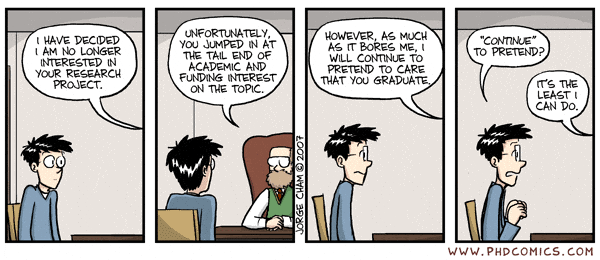In a previous article, I listed some ways that people annoy their co-workers and many of you added some of your own pet peeves.
Now I would like to discuss some ways to be the lab favorite, also known as the “golden child”. Does your lab have a “golden child”? Someone who is always perfect, the favorite of the PI, the go-to person for everything by everyone? Do you wonder how they got that way?
Well, actually, I can’t tell you because I wasn’t the golden child of my lab. But I’ve known a few and I run a lab myself. So instead, I am going to tell you what qualities or behaviors a person has to show to be my golden child. That’s right. Here is a list of 5 ways to be my #1 scientist. You’ll be on my “awesome” list instead of the s-list if you do the following:
1. Look things up yourself. Don’t go to your PI or to the post-docs with questions that are easily researchable yourself. If your question is “should I do it this way or that way?” you should already have an answer as to what you think you should do. Your PI wants to see that you are learning how to design experiments and direct a project on your own.
2. Take initiative. If you have an idea or a theory, go for it! Try it without asking. Please do not ask me before doing every experiment. Just do it (within reason- if it requires a trip to Mexico to collect rare mud samples from ancient Aztec burial grounds, then of course, discuss that first) . I expect my scientists to think on their own and have ideas and it is ok to try them out first and see if they have value.
3. Show leadership. You are the project manager for your research. Getting your project done may mean collaborations with others both inside and outside your institution. This is a repeat of points 4 and 5 of the article “Pointers for new graduate students“. In an industrial lab, I like to see my scientists communicating with researchers working in areas of common interest and taking the lead in working together to generate data for posters or for future products. In academics, you’ll want to discuss with your PI first what labs you want to collaborate with, to protect the confidentiality of your work. Once you both agree it is a good idea, take the lead in this area.
Showing leadership can also be willingness and ability to manage another person, such as an undergraduate or a rotation student, and doing a good job at it. Showing the ability to lead another person’s work, oversee someone else’s progress, and take responsibility for their results shows excellent leadership.
4. Be the expert in your area of research. You should know everything about your subject of study. Know what’s going on in the field and who the thought leaders are. Your PI can’t read all the details of every paper for every project in the lab. They are counting on you to do that. Here are some suggestions on becoming an expert.
5. Show progress each week. We all have our off weeks (sometimes months- dare I say year?) where things just don’t go right. But as Nick mentioned in an earlier article, there’s no need to worry about getting results as long as you are doing things properly. If you can show logical experiments as to how you are approaching the problem and how you are dissecting it, it gives your PI confidence that you can figure it out.
If someone comes in with inconsistent results week after week and can’t figure out why and doesn’t have a plan for getting to the answer another way, they are going to quickly fall down the totem pole. If I have to hear “It didn’t work”, I want it to be followed by “but I think I know why or what to try next.”
6. Other stuff. Some things are obvious- of course you should be helping others when you can, sign up to make the coffee for journal club once in a while, bring the microbrewed beer for Friday happy hour (instead of the Pabst Blue Ribbon), and get the extra discounts for the lab by staying on good terms with the sales folks.
For a busy PI with way too many commitments and not enough time to read all of their emails, the best grad students and post docs are independent and inventive, in control and motivated to succeed. Even as a new student, it is never too late to show your willingness to think for yourself and think outside the box (in my lab, we call it “cowboying it”) .
The most fun we have in R&D at MO BIO is when we get to “cowboy it”. And usually our biggest leaps are made this way too.
I would love to hear from some of you “Golden Child” grad students. I know you are reading. Let’s go superstars. Add to this list and tell us more about how and why you are #1.
~Suzanne (now on Twitter)





